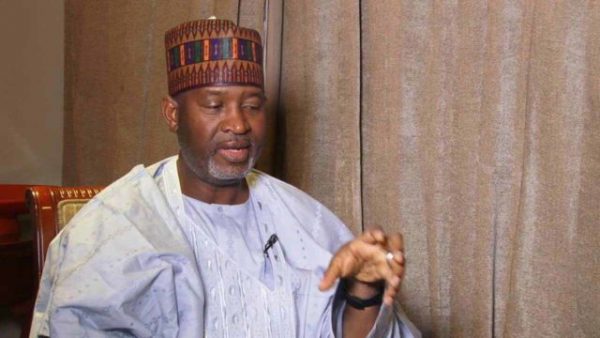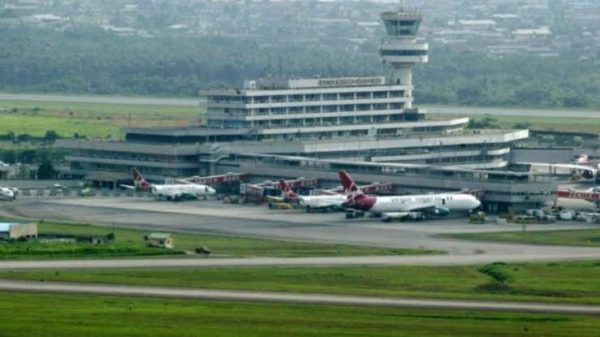$350 CVFF Disbursement: Shipowners Dismiss Minister’s Promise, Say Not Possible Under Buhari’s Regime

· Guideline sets $25million limit
· Want initiative called off
Against hope that the over $350million Cabotage Vessel Finance Fund(CVFF) will be disbursed soon as promised by the Minister of Transportation, Engr. Muazu Sambo, members of the indigenous ship owners associations have ruled out the possibility under President Mohammedu Buhari, saying the refrain on disbursement is a political statement channeled to a wrong direction.
The ship owners under the umbrella of Ship Owners Association of Nigeria(SOAN) and the Nigerian Shipowners Association(NISA) spoke with MMS Plus on different occasions.
Recall that Sambo recently in Port Harcourt, Rivers State assured that CVFF would be disbursed under his leadership as Transport Minister with less than seven months to leave office, to enable indigenous shipping operators to enable them to compete favourably with their foreign counterparts.
Subsequently, the Nigerian Maritime Administration and Safety Agency(NIMASA) said that eleven banks had been shortlisted to disburse the fund to an undisclosed number of company beneficiaries, thereby raising dust in the process. The immediate past Minister of Transportation, Hon. Rotimi Amaechi in his seven years in office made similar promises with intervening controversies he created by claiming that the funds does not belong to ship owners but government and eventually he did not fulfill his promises.
The ship owners maintained that there are spelt out guidelines on disbursement of CVFF as stipulated in the Cabotage Act of 2003 which has not been amended or repealed as such any other short cut to the disbursement without recourse to the National Assembly is not only illegal but subject to legal challenge.
Consequently, the Minister cannot jump the gun by breaching the law intentionally, they said, citing that the Federal Government had gone against the provisions of the Act with the Treasury Single Account(TSA) policy by directing that the Fund originally lodged in commercial banks designated as the Primary Lending Institutions(PLIs) be transferred to the TSA .
The CVFF, an intervention fund created for the development of indigenous shipping capacity in Nigeria, has grown to over $350 million in 19 years of its existence
Section 43 of the Act provides other sources of CVFF as,“The following shall be paid into the Fund: (a) A surcharge of two (2) percent of the contract sum q performed by any vessel engaged in Cabotage trade; (b) A sum as shall, from time to time, be determined and approved by the National Assembly; (c) Monies generated under the Act including tariffs, fines and fees for licenses and waivers; and (d) Such further sums accruable by the Fund by way of interest paid on and the repayment of the principal sums of any Loan granted from the Fund”.
Only Nigerian citizens and shipping companies wholly owned by Nigerian citizens as defined by the Act shall be eligible to apply and benefit from this Scheme.
According to the guideline, “All applications shall be subjected to the specified risk acceptance criteria and only qualifying applications shall be allowed access to the Funds. Each qualifying individual applicant or several applicants whether related by management or ownership can only be availed a facility not exceeding USD25 million or its equivalent.”
The President of SOAN, Dr. Mk George Onyung dismissed the Minister’s promise as political and not based on reality, asserting that the government had flouted the guideline and Cabotage Act with the TSA policy.
Speaking with MMS Plus, the Chief Executive Officer of Sea Transport Services Limited, Mr. Aminu Umar, said the minister has said in many fora that he is going to disburse this Fund though we know that the Act is very clear on the guideline that needs to be put in place. I understand that the last guideline that was put in place was long time ago in 2006 before the coming of Rotimi Amaechi.
“This guideline has not been changed neither has it been amended. The process of disbursing CVFF by the Act is that you have to have a guideline and the guideline forwarded to the National Assembly for approval. Whether that can be done within this administration, which has a maximum of seven months to go, is what I do not know. I don’t think it is possible because we are already in the campaign season. So it would be difficult. All the operators in the industry believe the time is too short to go through all that process of selection, following the guideline and be able to disburse in the next seven months.
“Remember, December is a closed month because we have two weeks to work in December the rest of the week is holiday. We have the election in February after that more or less we are going to go into transition. I do not think it is going to be likely that this is something that would happen in this dispensation since at this stage we are already in November, nothing has commenced.
“This is not encouraging. The money was put together by ship owners yet we have not been able to access it since 2007. We are talking of 15 years or more that we are not able to utilize it. It is very important we structure and strengthen things out to enable us have access to the fund and deploy it for its purpose.
Aminu added that shipowners are now agitated to the point of saying that they would either stop making the statutory contributions or insist that government should stop the intervention initiative,while calling for the review of Cabotage Act.
His words:“The operators are saying that if it is difficult to disburse the fund, then let it be called off. The Act also needs to be reviewed. If it is impossible to give it to anybody, then maybe the operators should suspend the payment pending when the government is ready”.
Asked if he discovers that the fund has been diverted for other uses, he said the shipowners associations will hold meetings to chart the way forward and the law will take is course. “I believe there is for that one provision for that in the law. I think the ship owners association would deliberations to see what to do because if somebody decided to go against the Act due to some interest, I think the law should take its course.”







